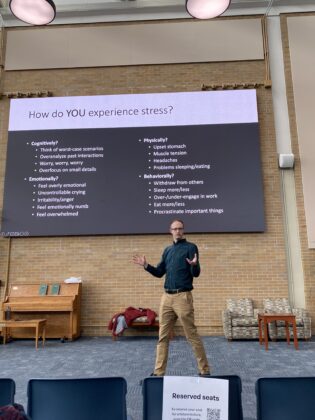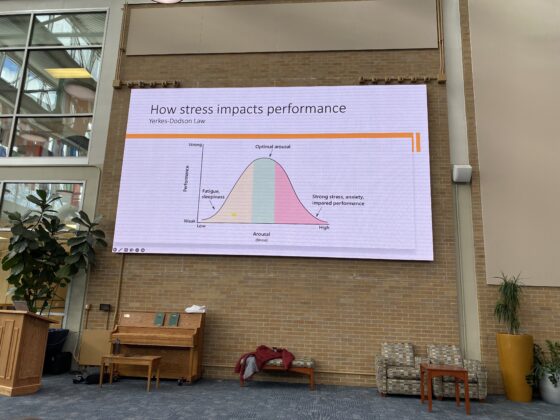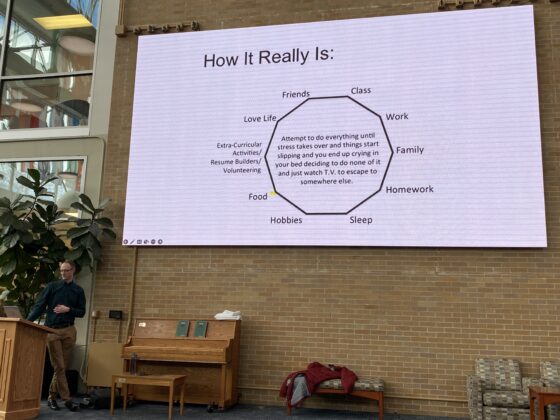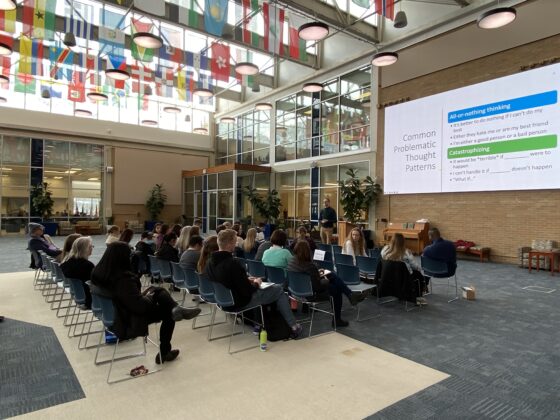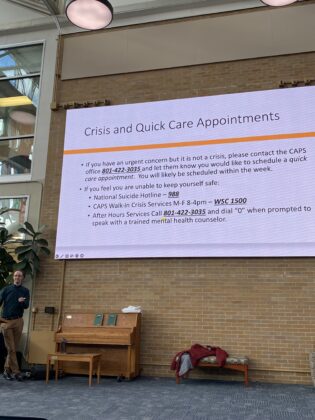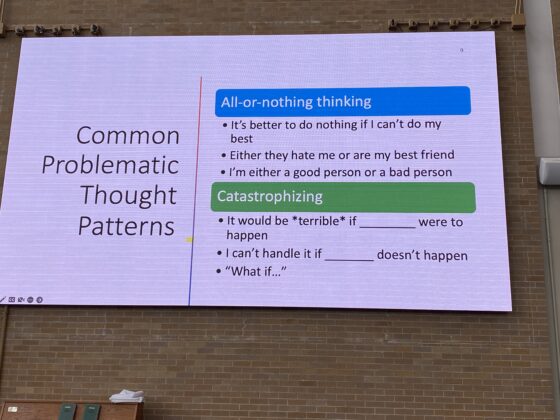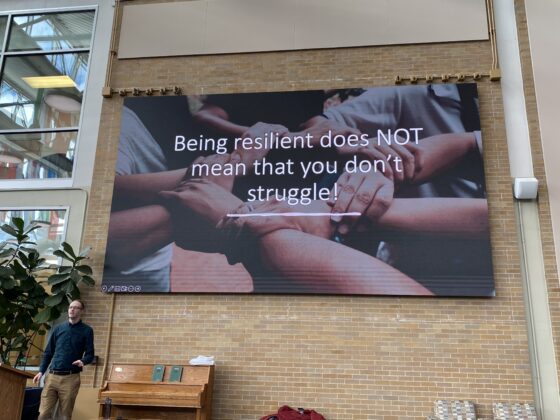The Student Wellness Program, in conjunction with the Employee Wellness Program, hosted a workshop on resiliency and bouncing back from challenges for BYU Wellness Week. The workshop was led by Broderick Brown, a psychologist at BYU.
Jamal Willis, the assistant director of student services, said the topic for the workshop was chosen based on student need.
“We try to take the pulse of the students, and employees, and see what they may need,” he said. Willis said he felt it would be a good idea for someone from the Counseling and Psychological Services department to speak during the week.
Brown began by reading Matthew 11:29-30, and explained why it is an important scripture during the workshop.
“The Savior is promising us rest here,” Brown said. “We aren’t promised that we will never face difficulties, but we are promised that he will make our burdens light when we deal with them.”
He said it is important to learn and grow from challenges, and talked about a beatitude that his mother used to say, specifically about being resilient.
“Blessed are the flexible, for they shall never be bent out of shape,” he said.
Brown said there are pressures that come from different directions, constantly pulling people in different directions. Some of these pressures are money, stress, school life and work. The focus of the workshop was on developing resiliency and overcoming challenges.
According to the American Psychological Association, resilience is “the process and outcome of successfully adapting to difficult or challenging life experiences, especially through mental, emotional, and behavioral flexibility and adjustment to external and internal demands.”
The definition includes factors of how well people adapt to adversities, including “the ways in which individuals view and engage with the world, the availability and quality of social resources and specific coping strategies.”
Brown spoke about this definition, including how this can apply to students and faculty at BYU.
He said there is an optimal level of stress to function at, as not having stress is not helpful, but too much stress is not either. Understanding how stress is felt both mentally as well as physically is important both personally as well as interpersonally.
Brown said, for example, he tenses his shoulders when he is stressed. When he began to understand that his stress is manifested by tense shoulders, he was able to approach his stress in a conscious way and deal with the real problem.
He asked those in attendance what they say to themselves when something difficult happens. Brown said people can be tempted to be dismissive of their problems, which is not helpful. He said there are problematic thought patterns that many people have, such as “all-or-nothing thinking.”
Brown said this is very common in children’s media. He gave the example of children’s television shows, in the way that it is generally easy to tell who the “bad guy” in the story is and who the “good guy” is.
“All-or-nothing thinking gets us into traps,” Brown said. It can lead to people believing they are a “bad person,” even if the world does not function in that way, according to Brown.
Another example of a problematic thought pattern is “catastrophizing,” or having worst-case scenarios in mind, Brown said. It happens when people continually ask “what if” questions and have a downward thought spiral. Brown said there are lots of different ways that people can be caught up in their thoughts, especially when dealing with negative experiences.
Near the end of the workshop, Brown talked about coping strategies for times of high stress or problem. He led those in attendance in a sensory activity, showing how to ground and self-soothe through the five senses. He instructed them to see five things, hear four things, smell three things, taste two things and touch one thing. He said it allows people to focus back on the present moment and deal with challenges after calming down.
He closed the workshop with John 16:33 and testified of the power of the scripture, and how there will be tribulation but peace can be accessed through Jesus Christ. He said that religious exercise is also an important factor in mental health.

